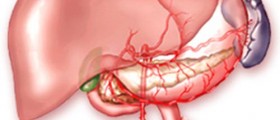
The use and benefits of interferon
Interferon is a protein that is naturally produced in the human body, or more precisely, it is secreted by the immune system cells. Even though there is a slight difference among alpha, beta and gamma interferon, the fact is that they have a lot of mutual benefits. It is not fully understood how they function, but it is known that they somehow manage to alter the way in which the immune system responds to bacteria, viruses, other invading substances and microorganisms. Interferons can also help in fighting cancer, because of their ability to slow down the growth of the cancerous cells and to enhance the immune system. Also, interferon can be used in the treatment of various types of leukemia, Kaposi sarcoma that is related to AIDS, chronic hepatitis C and B, malignant melanoma, multiple sclerosis, osteoporosis that is malignant in nature, and genital warts.
Side effects of interferon
Unfortunately, interferon is not without side effects, so those who are about to use it should first inquire about them. Usually a doctor will provide them with all the necessary information, to determine, if they belong to the risk group, and to check whether some other medications are being used, in order to avoid possible interactions.
Generally, serious side effects of interferon are rarely experienced, while milder problems are a bit more common. Among them are, those that resemble flu (such as fever, headache, muscle ache, chills), If the patient uses interferon in doses that are higher than prescribed, then symptoms such as diarrhea, nausea, vomiting, pain in the back, joints and abdomen, and tiredness are very likely to be experienced. As it has already been said, serious side effects are not experienced frequently, but if suicidal thoughts or signs of depression, problems with liver or thyroid gland, pain in the chest, infections or unusual bruising and bleeding show up, it is necessary to consult the doctor as soon as possible. Allergic reaction is also possible, but in order to reduce the risks, the patient should inform the doctor if some blood disorder, liver disease, problems with thyroid gland or any kind of allergy is present.

















Your thoughts on this
Loading...